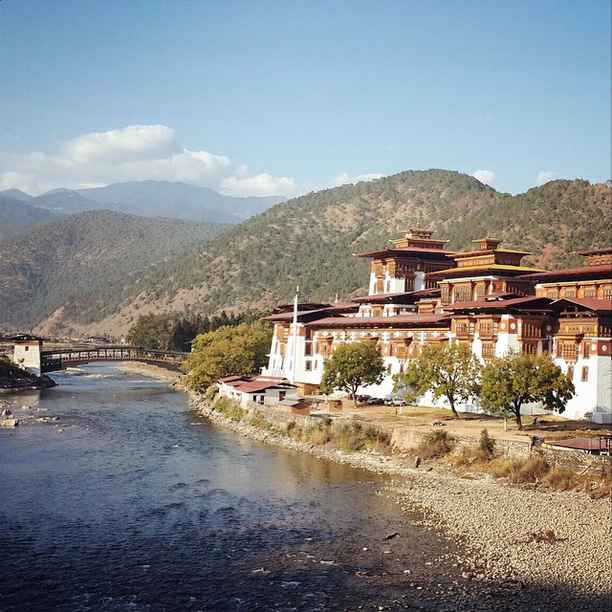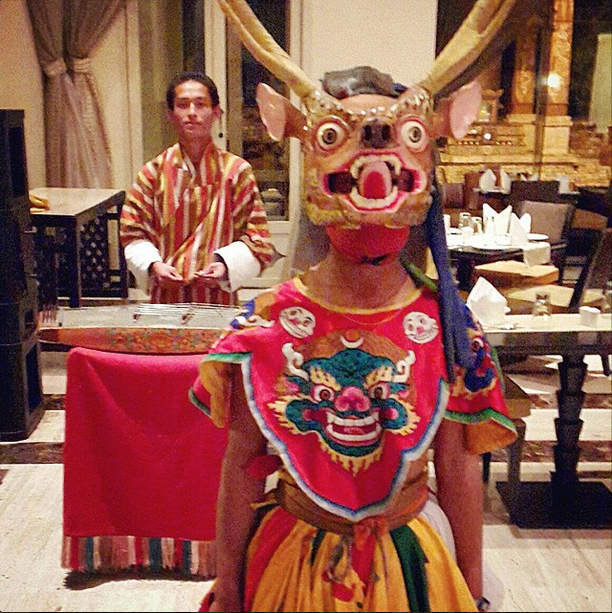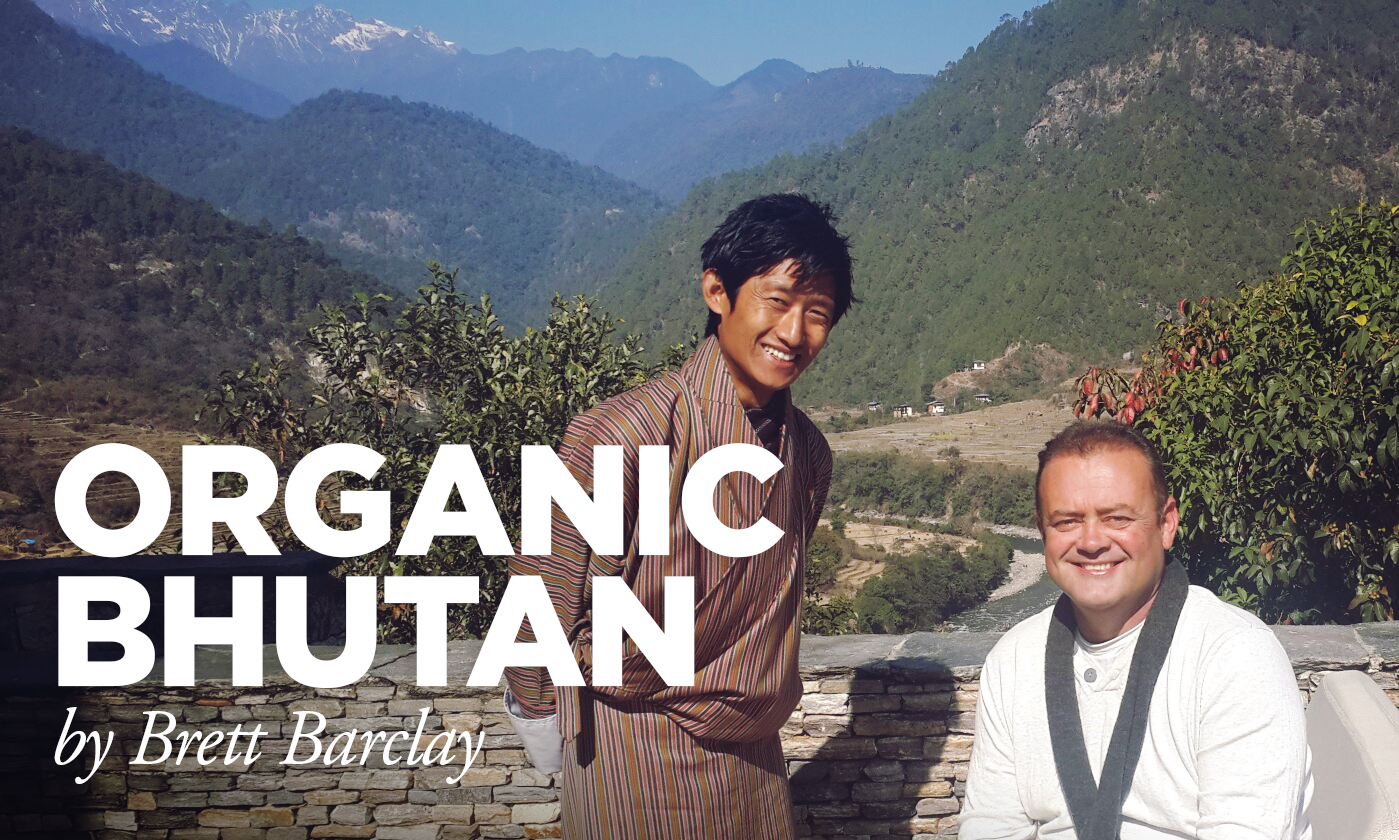Bhutan was voluntarily isolated for many centuries in an effort to hold on to valued traditions, and only opened its borders in 1960. This resulted in many of its traditional farming and production methods surviving the Industrial Age, with the fourth Dragon King of Bhutan, Jigme Singye Wangchuck, stating that Bhutan’s economy would be measured by Gross National Happiness, in contrast to western countries’ scramble for material wealth.

Organic traditions
I was intrigued as my guide Dorji and I wandered through the local market. It became clear that all produce grown in Bhutan is organic. I asked if this is something new, as the trend towards organic produce has spread through the western world like wildfire in recent years. He looked a bit confused, and then said “the Bhutanese have always grown their produce this way, it is a tradition. Why would they add chemicals to them?” As the last Buddhist state, Bhutanese society believes that killing anything – even an insect – is a sin. I doubt the pesticide industry will gain a foothold here.
Earthworms and manure keep the cycle going
Bhutanese fresh produce seems so lush, sitting cheerfully on the market shelves, and Dorji remarked that this is because the ground is wriggling with earthworms because manure is worked into the soil. Repeating this preparation of the fields each harvest ensures the cycle keeps going; the soil will produce again and again
Cheese on everything!
Rice, that famous staple of Asia, is eaten at all meals here, but I was surprised to learn that it is almost always accompanied by chilli cheese. When I mentioned to Dorji that cheese is absent in most traditional Asian diets, he explained that the Buddhist belief in sanctity of life means a lack of meat in their diet, so cheese is a replacement. Sundried cheese is even used as the local chewing gum!
Good times, organically
The Bhutanese are traditionally subsistence farmers and live a hard, but good life in this mountain Kingdom. Apparently the toil is a good excuse to end most days with drinks – traditionally Ara (a liquor made from corn, rice or wheat) was the tipple of choice. Trade with India saw the introduction of beer – imported at first and now locally brewed. Local favourites are Druk and Red Panda, and of course it’s organic!













